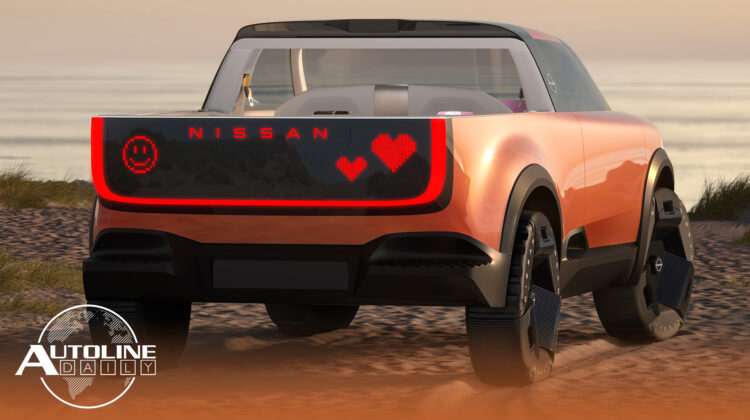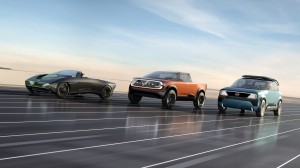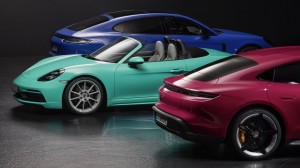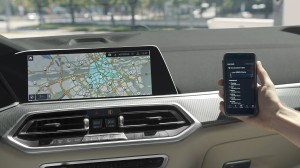
Listen to “AD #3212 – VW Poaches Apple's Head of Batteries; Nissan's Electrification Plans; Chinese-Made EVs Could Impact Europe” on Spreaker.
Follow us on social media:
Runtime: 9:58
0:07 VW Poaches Apple’s Head of Battery Development
0:55 Nissan Reveals Its Electrification Plans
2:13 Euro NCAP Tests Highway Assist Systems
3:32 Porsche Offers Any Color Under the Sun
4:44 BMW Expands eDrive Zones
5:19 Stellantis Secures Lithium Supply for Batteries
5:56 Buick Velite 6 EV Gets Same Updates as Menlo EV
7:33 Chinese-Made EVs Could Have Political Impact in Europe
8:46 Chip Shortage Not Letting Up
Visit our sponsors to thank them for their support of Autoline Daily: Bridgestone, Intrepid Control Systems, Magna and Schaeffler.
This is Autoline Daily, the show dedicated to enthusiasts of the global automotive industry.
VW SNAGS APPLE’S HEAD OF BATTERIES
First it was Ford. Now it’s Volkswagen. Traditional automakers are stealing talent away from Apple, which is a role reversal of what was going on just a few years ago. Volkswagen has poached the head of global battery development at Apple, a guy named Soonho Ahn. He was rumored to be working on Apple’s electric car codenamed “Project Titan.” Ahn previously worked at Samsung before joining Apple in 2018. And just a few months ago Ford hired Doug Field, the head of Apple’s electric vehicle project. Funny, but just a few years ago Silicon Valley was hiring away top talent from traditional automakers. Now it looks like things are going in the other direction.
NISSAN REVEALS ITS ELECTRIFICATION PLANS
Nissan finally bit the bullet and is going all-in on EVs. Well, kind of. This morning it announced that it’s going to spend about $17.5 billion over the next five years to launch 23 new electrified models, 15 of which will be EVs. And to show off the wide range of vehicles it’s considering, Nissan revealed a number of concepts; including the Hang Out, which looks like it’s ready for any adventure; the Chill Out, a mass-market crossover; the Surf Out, a lifestyle truck; and a sporty convertible, called the Max-Out. And to power some of those future EVs Nissan says it plans to launch its first EV with an all-solid-state battery by 2028. Not only will charging times be cut significantly with the batteries, but so will cost. It expects its battery packs to come down to $75 per kWh. But it needs to hit $65 per kWh to reach cost parity with an ICE vehicle. Nissan says it will do just that in the future. Those are the main highlights, but Nissan is also making investments in expanding EV manufacturing and the charging infrastructure.
EURO NCAP RATES HIGHWAY ASSIST SYSTEMS
The Euro NCAP, which performs crash test ratings in Europe, just released the results of its latest tests of highway assist systems, which is a combination of Adaptive Cruise Control and Lane Centering. It looked at how the technology is able to assist and promote safer driving as well as how the system engages the driver and what safety back-up is available. The BMW iX3 earned a “very good” rating, the Ford Mustang Mach-E and Cupra Formentor received “good” ratings, the Polestar 2 and Hyundai Ioniq 5 got “moderate” ratings and lastly the Toyota Yaris and Opel Mokka-e were rated as “entry level.”
PORSCHE OFFERS ANY COLOR UNDER THE SUN
Automakers are always trying to reduce the build complexity on their assembly lines. Not Porsche. It’s going in the opposite direction. Instead of offering customers a dozen or so paint colors to choose from, it’s giving them 160 choices. So, on a 911 you have over 100 different colors to choose from. A Taycan has 65. And if that’s not enough, Porsche now allows customers to submit their own paint sample that they’d like their car painted. But that can add 11 months to ordering a car since that paint color must go through all kinds of testing to make sure it will last. And you know Porsche. It charges through the nose for these kinds of options. Special colors add $3,000 to the cost of the car. And submitting your own paint sample adds about $12,000. But as Mark Reuss, the president of General Motors, once pointed out on Autoline After Hours, “Build complexity is not a problem, as long as the customer is willing to pay for it.”
BMW EXPANDING eDRIVE ZONES
BMW is expanding its eDrive Zones. Those are the areas where BMW plug-in hybrid models automatically switch from ICE to electric drive in cities as a way to curb emissions. The feature is now available in 20 additional European cities, which brings the total to 138. And it expects eDrive Zones to roll out to at least another 30 cities worldwide in the next year. There’s some hope that technology like this could be a work around to ICE bans in major city centers.
STELLANTIS SECURES LITHIUM SUPPLY FOR BATTERIES
Like most automakers, Stellantis is making a big push into electric vehicles and it just made a deal to get the lithium it needs for all those EVs. Vulcan Energy will supply the automaker with battery grade lithium hydroxide for its EVs in Europe. Vulcan will supply Stellantis between 81,000 and 99,000 metric tons of lithium over a five-year period starting in 2026. By 2030, Stellantis is targeting that 70% of sales in Europe and 40% of sales in the U.S. will be low emission vehicles.
BUICK VELITE 6 EV GETS SAME UPDATES AS MENLO EV
Last week we reported that the Chevrolet Menlo EV, which is sold in China, received a number of updates. Well, the Buick Velite 6 EV, which shares the same platform, just got the same upgrades. It now features a 61.1 kWh battery pack, which increases range to 518 kilometers or 321 miles based on the China Light-Duty Vehicle Test Cycle. It also gets a new, more powerful 130 kW electric motor as well as a liquid-cooled thermal management system. Pricing for the new Buick Velite 6 EV ranges between $25,000 and $28,000 after national subsidies.
CHINESE-MADE CARS COULD CAUSE POLITICAL CRISIS IN EUROPE
The European auto industry is flat on its back due to pandemic lockdowns and the chip shortage. The one bright spot is with sales of electric vehicles. But LMC Automotive warns that Chinese-made cars are starting to take a sizable chunk of the EV market in Europe. The number of Chinese models offered in Europe doubled in the last 5 years. And they have a cost advantage over their European counterparts. NIO just signed a deal with Shell to build battery swapping stations in Europe and for NIO’s customers to use Shell’s EV charging network. Here’s our Autoline Insight. This could cause a political crisis in Europe. Labor unions are already worried about job losses that EVs will cause. Their only hope is to make as many EVs and components in Europe as possible. But if Chinese-made cars displace those jobs, there’s going to be a backlash against those imports. And that could make it very uncomfortable for European automakers, since China is their biggest market and they’ll be right smack in the middle of any trade dispute.
CHIP SHORTAGE NOT LETTING UP
That chip shortage shows few signs of letting up. Now Daimler Trucks says it’s going to cost it billions. Meanwhile, in the U.S., the Biden Administration wants to make $52 billion available to add more chip production in the US. Gina Raimondo, the secretary of the Commerce Department, is in Detroit today to meet with automakers and the UAW to build political support for the CHIPS act, which is the name of the bipartisan bill that would launch this effort.
Autoline After Hours will be back again this Thursday. So we invite you to join John and Gary for some of the best insights into what’s going on in the automotive industry.
And that wraps up today’s report, thanks for watching.
Thanks to our partner for embedding Autoline Daily on its website: WardsAuto.com
Seamus and Sean McElroy cover the latest news in the automotive industry for Autoline Daily.











